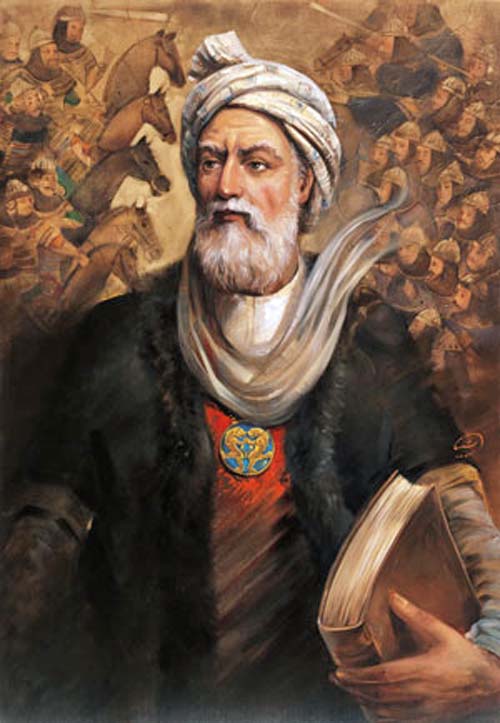I heard it was because it was an Indo-European speaking culture, thus too difficult to arabize them to the same extend as the Aramaic of Iraq/Levent, the Berbers of N.Africa and the Copts of Egypt, which speaks an Afro-Asiatic Language like Arabic.
Wrong..Arabic language was extensively enforced while local culture and languages were suppressed by force..the Berbers of Africa never came to accept Arabs and the tensions continue to this day.
Berbers (Amazigh) are the descendants of the original inhabitants of North Africa, going back at least to the fifth century B.C. Punic settlement was the first challenge to Berber culture. Roman, Vandal, Byzantine and Arab rule followed. The Arab invasion of the seventh century brought about the Arabization of several cities and most of the coastal area, but most of Algeria’s countryside remained Tamazight-speaking well into the 12th century. The Arabization of the countryside accelerated during the invasion of Arab nomads from Egypt in the late 11th century and by the late 18th century Berber speakers were limited to the least accessible parts of the country – high mountains, distant oases and desert plateaus, and mountain areas where the vast majority of Berbers live today. These areas include: Kabylia (Djurdia Mountains) southeast of Algiers, the Aures Mountains southeast of Constantine and Ouarseni Massiv, southwest of Algiers.
Berbers have a long history of resisting Arab rule, despite being converted to Islam in the 8th century. They were periodically able to maintain independent kingdoms and empires from shortly after the time of the Arab invasion until the 16th century. They resisted the rule of the Ottoman Turks. They also opposed French colonial rule despite a policy of preferential treatment by the French. In 1857, almost 30 years after conquering Algeria from the Ottomans, France finally took administrative control over Kabylia (AUTLOST = 1). Even once the French took control, the Berbers in Kabylia continued to resist, In 1876, 1882 and 1897, the Berbers in Kabylia staged massive uprisings against French forces. Kabylians also participated heavily in the Algerian War of Independence.
The majority of Algerians have at least some Berber heritage, and many are descendents of Arabized Berbers (RACE = 0). However, only roughly 20 percent of the population identify themselves as Berber (GPRO06 = 22). Due to their shared heritage, the primary distinguishing characteristic of Berbers is linguistic, although some cultural traits are also relevant (CUSTOM04-06 = 1). Linguistic distinctions, along with territorial concentration, have resulted in a strong identity forming among Berbers.
The ruling Arab majority decided to Arabize Algeria following independence in 1963 to counter the French colonial influence on their state. This included making Arabic the only official language of Algeria. While the Berbers were not the direct target of this policy, they suffered from it. Linguistic discrimination became the driving force behind the formation of Berber political parties. In 1963, the Socialist Forces Front (FFS) split off from the National Liberation Front (FLN), which has been Algeria’s dominant political party both during the revolution and for most of Algeria’s history. The FFS, which continues to be a Berber-dominated party, consistently calls for official status for Tamazight (the Berber language) and for a secular, pluralist polity. The FFS also calls for greater autonomy for Berber-dominated regions and more Berber input into central policy decisions (POLGR06 = 3). The FLN, which has controlled Algeria’s government since independence, has virtually excluded Berbers from high-ranking positions within the party. This policy has effectively excluded Berbers from high-ranking positions in Algeria’s government.
In 1989, the Rally for Culture and Democracy (RCD) was formed as a Berber political party, focusing on Berber cultural rights as well as broader democratization issues. The RCD and the FFS have also jointly formed the Berber Cultural Movement (MCB) as an umbrella organization under which the two parties undertake joint action. In 1999, RCD joined the coalition government, marking the first time since independence a Berber-dominated party has been part of a ruling coalition. While this is an important signal of increased Berber inclusion, the RCD has not been successful in pushing Berber linguistic issues (CULGR04-06 = 2). Since the violence of 2001, the FFS and the RCD have been joined by two more influential parties, the Berber Citizens Movement and the Movement for the Autonomy of Kabylie (MAK), which is based primarily in France due to its illegal status (GOJPA04-06 = 2).
During the 1980s and 1990s, the challenge to the Algerian government by the Islamic Salvation Front (FIS) and other Islamic parties constituted a new challenge for the Berbers. These parties call for the Islamization of Algeria which includes the mandatory use of Arabic in schools and government. This has resulted in both governmental concessions in that area and sporadic direct confrontations between the secular Berber parties and Islamic fundamentalists. While the fundamentalists were forced into a tactical retreat by the late 1990s, they still constitute a major threat to Berber populations and aspirations for several reasons. First, their appeal is strong among the Algerian population. Second, several fundamentalist militants retreated into the Berber-dominated Kabylia region, one of the more inaccessible regions to security forces and also one of the most staunchly secular regions. Sporadic attacks, which have resulted in the deaths of several Berbers, have continued up through 2006 (CCGROUPSEV106 = 3).
MAR | Data | Assessment for Berbers in Algeria









